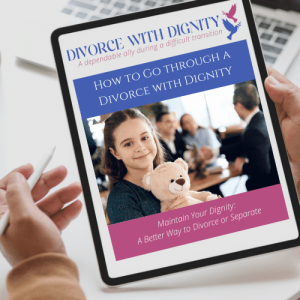Couples can (and do) divorce at any age – whether this be the result of infidelity or the simple act of growing apart. However, the challenges associated with the divorce process can seem that much more intense when the couple has been together a long time – regarding both the emotional fallout and the division of assets.
Despite this, the divorce rates for older couples have been growing steadily for several decades. In fact, since 1990, figures for divorcing couples aged 50+ have doubled and are expected to triple by 2030. According to a recent study (The Gray Divorce Revolution: Rising Divorce Among Middle-Aged and Older Adults), ‘roughly 1 in 4 divorces now occur in persons aged 50 and older’.
Psychologists have attributed various reasons to this spike in divorce, with many believing it is connected to the fact that we are simply living longer. As a result, in ‘an era in which the majority of people can reasonably expect to see their 80th, 90th, or even 100th birthday [people] will demand a rewrite of the life scripts’ (Study). To put it simply, with increasing life expectancies, people are less likely to stay in a situation where they are unhappy.
Social mobility also plays a crucial role in these figures – especially from a female perspective. Women are no longer as reliant upon their husbands to maintain their lifestyle and, as such, are more likely to file for a divorce. Furthermore, peaceful or no-fault divorces enable couples to separate with grace and dignity, as opposed to a long overdrawn court case.
As a result, if you fall into this demographic and are considering separating from your partner – you aren’t alone. However, you must understand the challenges of these processes ahead of time so that you can prepare yourself for what lies ahead.
The Divorce Process.
Whether the decision to separate is a new one, or you and your spouse have been living separate lives for a while, having an understanding of the legal process will help make your next steps as easy and stress-free as possible for all involved. For example, both parties must understand what you really lose when you go after your spouse in the divorce and the merits of parting amicably. This is particularly important if you have a lot of shared assets, own your home, and have joint bank accounts and pension schemes. For example, avoiding post-divorce litigation can speed up the process, saving you time, energy and money.
During this time, it’s also crucial that you work with a Divorce Provider who can talk you through every step of the process so that you know what to expect – whether they are breaking down complicated legal jargon or helping you to manage your expectations.
The Question Of The Future.
Regardless of how old you may be when divorcing, it’s typical to feel anxious about the future. For example, some divorcees worry about future dating prospects or having to move out of their home or feelings of isolation and loneliness. Of course, these questions seem to be intensified the older you are, as many people mistakenly believe it’s too late for them to enact change in their lives. As a result, they may try to resign themselves to a future of being alone.
However, it’s important to note that this does not have to be the case. In fact, there are an increasing amount of adults aged 65+ using dating apps, embarking upon new relationships, or simply finding a new lease for life as a single adult. In any case, being single and happy is better than staying in an unhappy marriage because you’ve been together for so long.
Nevertheless, the process will bring around a significant change in your lifestyle and daily habits, which you must be prepared for. You must put a plan in place that will allow you to take care of yourself during this time.
The Reception To Your Divorce.
When a couple divorces, especially after spending a great deal of time together, the event becomes a family affair. And while the process of separation may not affect your adult children in the same way it would if you divorced when they were little, you must prepare yourself for how others will respond to your divorce, too.
They will likely have plenty of questions (and maybe a little judgment), but you must remember you are making the right decision for both yourself and your spouse. Sit down with those close to you and break the news in a calm, collected manner. Remember that much of this process is very personal, meaning you don’t need to let them know every little detail.
Make sure you rely on your support network during this time so that you can also process your own emotions and feelings in a healthy manner.
To put it simply, if you and your partner are preparing for a ‘gray divorce,’ then you must be prepared for a pretty significant lifestyle adjustment. However, by enlisting the support of a DWD provider, you can navigate these changes with confidence and dignity – bringing your marriage to a peaceful resolution. This gives you the chance to continue to work on your relationship after the divorce while also giving you the freedom to move on.


